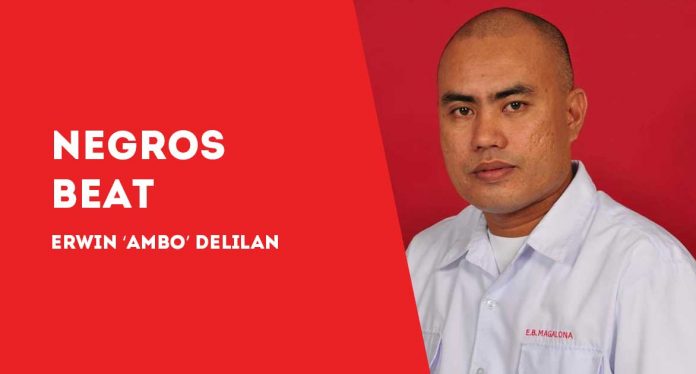
IS SHABU (meth) still circulating in Bacolod City?
Police records suggest that anti-illegal drug operations and shabu confiscations in the city have been significant since January.
So far, operatives of the Bacolod City Police Office (BCPO) have arrested 37 suspected drug personalities and seized P13.205 million worth of illegal drugs.
The most recent operations, conducted on February 17 and 18, resulted in the confiscation of more than P2.5 million worth of shabu from four suspects in three separate raids in Barangays Taculing and 3.
From January to December last year, the BCPO also recovered a total of 13,784.739 grams of suspected shabu, with an estimated value of P93.736 million.
I spoke with Bacolod City Police Director, Colonel Joeresty Coronica, and he was candid about the situation. He admitted that Bacolod remains the center of shabu trading in Negros Occidental, and possibly in the entire Negros Island.
“Big-time shabu transactions are usually conducted in Bacolod before the distribution spreads to other parts of the province,” he said.
This, he explained, is why most anti-drug raids are concentrated in the city.
‘Lucrative Livelihood’
Colonel Coronica also noted that shabu selling remains a highly “lucrative livelihood” for some Bacoleños.
Many of those involved disguise themselves as vendors, drivers, construction workers, and other blue-collar workers to avoid detection.
A police intelligence report, disclosed by the law enforcement coordinating committee in the province, revealed that around 12 kilos of shabu enter the Western Visayas region every month.
The source? Luzon. The delivery route? Through the Caticlan port in Aklan.
Of this total, at least two kilos are reportedly consigned to Bacolod and other areas in the newly re-established Negros Island Region (NIR).
Intelligence Fusion
To address this growing concern, the BCPO, Negros Occidental Police Provincial Office (NOCPPO), Philippine Drug Enforcement Agency (PDEA), and Philippine Coast Guard (PCG) have launched a periodic intelligence fusion to monitor the state of shabu trading in Bacolod and across Negros.
“We share vital information — everything about illegal drugs — including suspected syndicates, their areas of operation, their runners, and other critical details,” Coronica said.
However, he admitted that this effort alone is not enough.
Authorities are now considering inviting personnel from the Bureau of Jail Management and Penology (BJMP) in Bacolod and Negros Occidental to join the intelligence fusion.
“It is public knowledge that some drug personalities apprehended from time to time are former detainees. This suggests they may have learned the shabu trade while in detention,” Coronica added.
Asked for his comment, Colonel Rainerio de Chavez, director of the provincial police, said NOCPPO is implementing a whole-of-government approach, enlisting the support of all provincial and city law enforcement coordinating committees to help Bacolod and other towns and cities in the province address the persistent illegal drug problem.
He added that NOCPPO, in collaboration with the PCG, is intensifying port inspections across the province to curb the entry of illegal drugs.
Demand Remains High
Coronica admitted that the demand for shabu remains high in both Bacolod and Negros Occidental.
However, he acknowledged that police efforts are mostly limited to conducting drug buy-bust operations, which only target supply reduction.
“Our real problem is not the supply but the demand. We can conduct numerous anti-illegal drug operations every day and seize millions of pesos worth of shabu, but as long as the demand remains high, the problem will persist,” he said.
He lamented that as long as there is a strong demand for shabu, the illegal substance will continue to circulate in Bacolod.
Given this reality, Coronica urged parents to closely monitor their children’s activities, particularly teenagers, as intelligence reports indicate that Bacolod’s youth have become a key target market for shabu trade in the city.
The BCPO is also seeking stronger support from schools, religious institutions, and civic organizations in its anti-drug advocacy.
“We need to strengthen family foundations and build formidable community support, especially from religious institutions, to effectively fight illegal drugs through demand reduction,” Coronica emphasized.
A Case
Meanwhile, police have set their sights on a certain 24-year-old fitness gym instructor, who was arrested in a drug bust operation in Purok Nami-Nami, Barangay Sum-ag, Bacolod on December 12, 2024.
Authorities confiscated P4.6 million worth of suspected shabu from him during the operation.
According to BCPO reports, the suspect is a sub-leader of the Caunda drug group, which operates in Bacolod.
Aside from the Caunda drug ring, police are also closely monitoring the remnants of the notorious Cuadra drug group, which still has a presence in the city.
“The fight against these drug syndicates is tedious, but we will never lower our guard,” Coronica vowed.
Here is a breakdown of Bacolod’s anti-illegal drug operations and the value of shabu seizures in the first two months of 2025:
* January 3 – P1,020,000
* January 17 – P2,040,000
* January 18 – P1,700,000
* January 21 – P1,701,000
* January 22 – P204,000
* January 23 – P414,800
* January 31 – P34,000
* February 4 – P54,000
* February 6 – P42,000
* February 7 – P129,200
* February 8 – P1,836,000
* February 9 – P225,000
* February 10 – P37,400
* February 14 – P810,000
* February 17 – P1,462,000
* February 18 – P1,496,000
Despite these relentless operations, shabu ‘gusto’ remains seemingly unstoppable in Bacolod.
The numbers speak for themselves — a harsh reality backed by undeniable proof.
A sad truth, indeed!/PN







